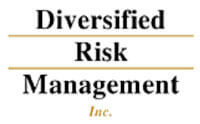Illegal Drugs At Work
If you are an employer and want to investigation employee substance abuse, contact us.
Drug tests often do not reveal whether the drugs were used at work or off company premises during one’s free time. Drug tests do not reveal the source of the drugs. If illegal drugs were purchased at work, dealers selling them usually escape detection when the “customers” of the dealers are terminated for failing drug tests.
There are an endless number of ways employers can handle reported information regarding theft, drugs or other serious forms of crimes against a business, or employee misconduct in the workplace. Our experience shows us that most of them are wrong.
Terminating an employee without a confession or additional conclusive, “impartial third-party” evidence can lead to unwanted litigation. You could be forced to put ex-employees into arbitration hearings in which they would be asked to testify against one another, only to have them plead the 5th Amendment and refuse to testify on the grounds they could implicate themselves in criminal liabilities.
Drug tests often do not reveal whether the drugs were used at work or off company premises during one’s free time. Tort law, especially in the more liberal states such as California, Massachusetts and Vermont, has leaned toward giving employees the benefit of the doubt in such cases, telling employers they have no right to control behavior away from work unless that behavior gives probable cause to suspect drug abuse through work performance, accidents or absenteeism and tardiness. Having been randomly selected for a drug test does not speak to performance issues in the least, and employers have failed in their efforts to take punitive action based solely upon failure of random drug screening.
A competent investigation firm would never give a client advice as to how it should react to a completed investigation. How a client handles the investigative results is between that company, its labor and employment counsel, and the employees involved. But when professionals provide the proof, employers are fully empowered; they are placed firmly “in the drivers’ seat” to handle these problems in any manner they see fit, and the specter of litigation is greatly reduced.
